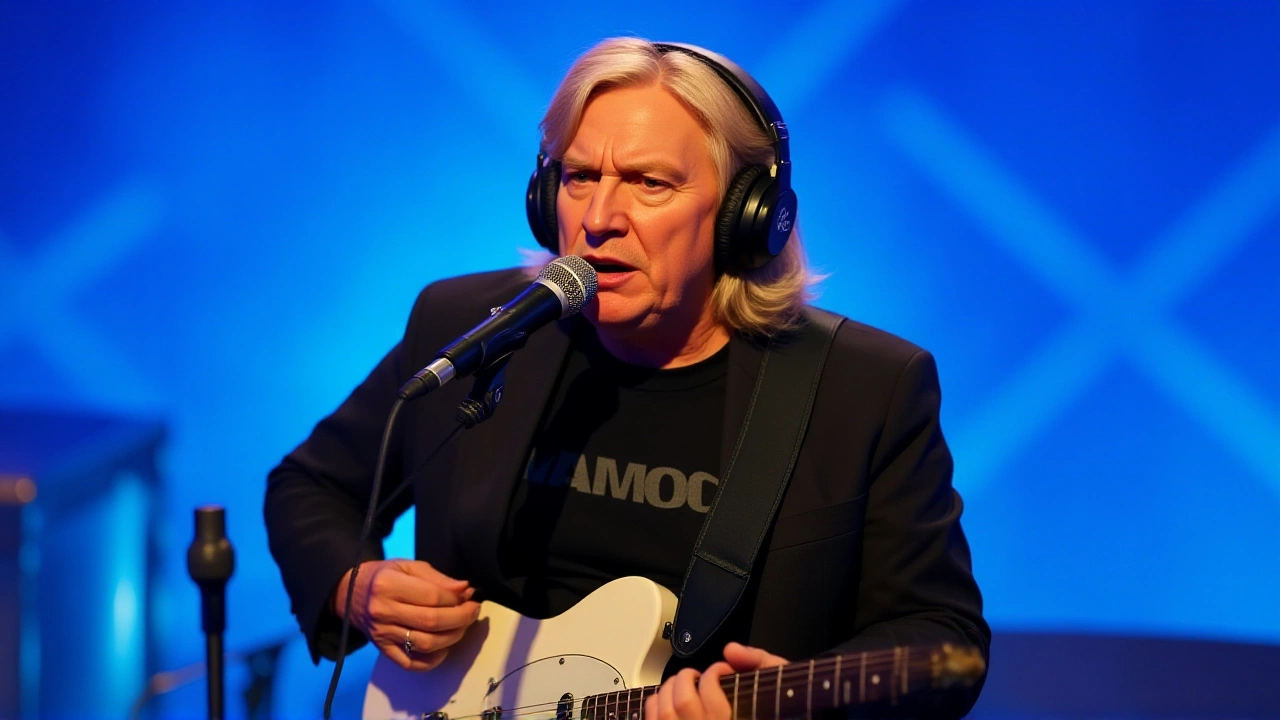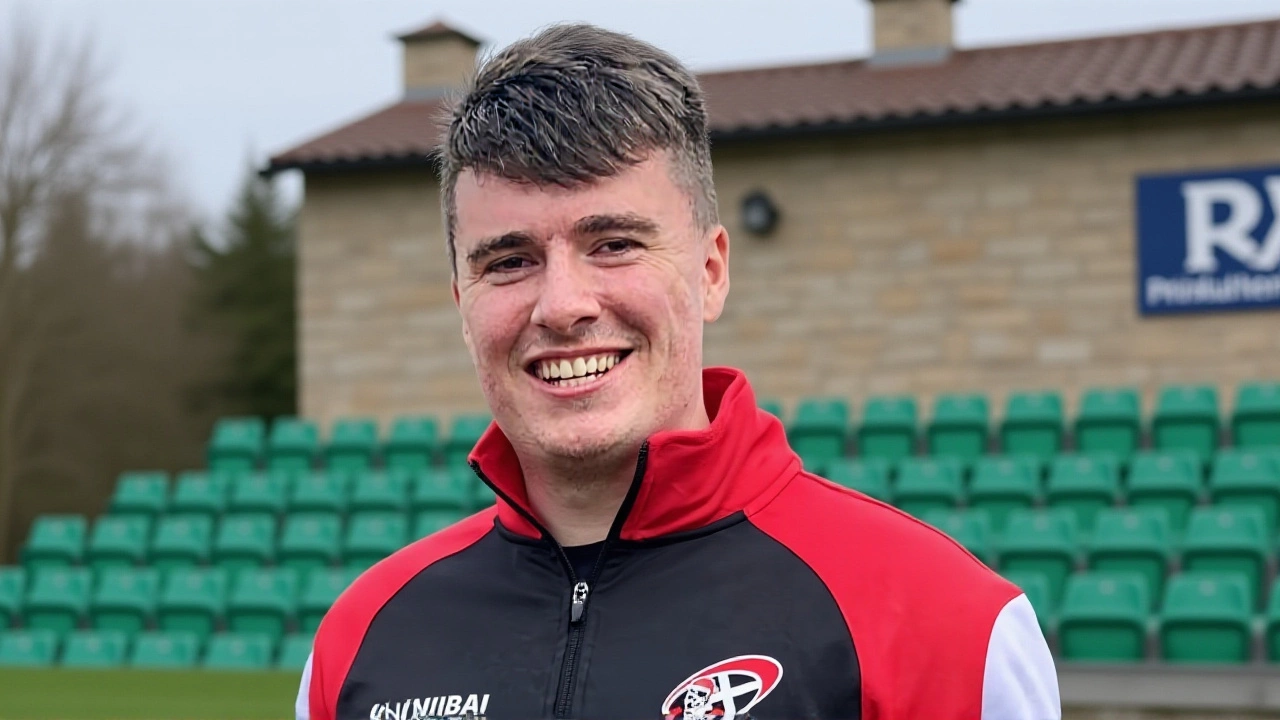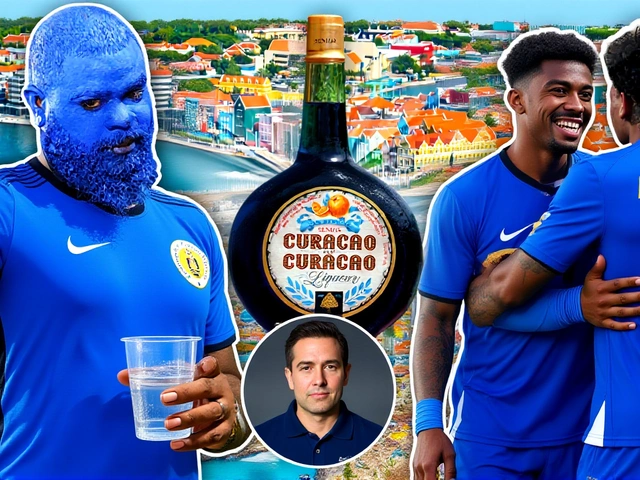When Joe Walsh stepped onto the training pitch at Mennaye Field in the summer of 2024, few expected him to become the quiet architect behind the Cornish Pirates’ defensive turnaround. But by November 2024, his fingerprints were all over the team’s most improved stats: line-outs won at 92% efficiency, opponents’ try rate down 37%, and a scrum that no longer caved under pressure. Now, the Irish coach has officially signed on for the 2025/26 season — a move that signals more than continuity. It’s a statement of intent.
Why Walsh Stays: The Quiet Architect of Change
Walsh didn’t arrive with fanfare. No glittering CV from Premiership clubs. No headline-grabbing quotes. Just a quiet, methodical approach honed over years coaching youth teams, women’s sides, and school rugby across Ireland. That background, as noted on the Pirates’ official staff page, gave him a rare understanding of player development — something that’s become crucial in a league where squad depth often decides seasons. "He’s been incredible," said Paver, the club’s senior coach, in a November 2024 interview with the Cornish Times. "You’ve really got to see it on the inside. His work ethic, his technical ability — and to run the line-out is a massive project, but also to do that in addition to defence and analysis." That line-out work isn’t just about height and timing. It’s about sequencing, deception, and reading opposition jumpers. Under Walsh, the Pirates went from averaging 75% success in set pieces to 92% — one of the top figures in the RFU Championship. And it’s not just mechanics. He’s built a culture where every forward knows their role, down to the millisecond.The Players Who Stayed: Building a Core
Walsh’s retention wasn’t just about coaching. It was about stability — and the club moved fast to lock in key players too. Three loan stars — Tomi Agbongbon, Harry Yates, and Matt Cannon — will return from Ealing Trailfinders for another season. All three became starters under Walsh’s guidance. Yates, in particular, shifted from bench to center after replacing Chester Ribbons in October, and his distribution has been a linchpin in the Pirates’ attacking structure. Then there’s James French, the 26-year-old prop who joined from Ulster Rugby in summer 2024. He’s played 25 games across all competitions, scored one try, and become a fixture in the front row. "We’ve worked hard to develop as a team," French said. "By keeping a strong core of this team, I believe we’ve built momentum." That momentum matters. At the time of the November 15, 2025 match preview against Cambridge, the Pirates sat 6th in the Championship — a stark contrast to Cambridge’s winless 14th-place position. And Walsh wasn’t taking anything for granted. "Another victory is though anything but guaranteed," he warned. "They turned us over last season. They’ll be hurting."Tactical Evolution: Line-Outs, Kicks, and the New Faces
Walsh’s influence extends beyond the forwards. His input reshaped the entire game plan. The Pirates’ kick game — once a liability — is now a weapon. Opponents report being pinned deep in their own half more than ever. And the tactical substitutions? Precision-timed. Ben Cambriani replaced Arthur Relton on the wing. Louie Sinclair, a 21-year-old fly-half, made his first start after Arwel Robson’s injury. Even the bench was reshaped: Zack Wimbush, dual-registered with Exeter Chiefs, and Angus Mawson, the Australian recruit, were both named as potential debutants. "Our line-out has been especially pleasing," Walsh said in the preview. "Defence has come on well. So has our kick game. With those strengths — and by continuing to add elsewhere — it’ll help give us a sound all-round game."
What This Means for the Championship
The RFU Championship is a brutal, transitional league. Clubs cycle through coaches like socks. But the Pirates, under the leadership of Paver and Cattle, are building something different: a culture of consistency. Walsh’s retention isn’t just about one coach. It’s about proving that long-term planning works — even in a league where financial pressures often force short-term fixes. The club’s strategy mirrors the rise of clubs like Ealing and Yorkshire Carnegie: invest in coaching depth, retain core players, and let continuity breed results. With Walsh in charge of the forwards and defence — two areas that traditionally win championships — the Pirates aren’t just aiming for top-half finishes anymore.What’s Next for the Pirates?
The 2025/26 season starts in September. The Pirates will open at home against London Scottish, a side they narrowly lost to last season. Walsh’s next challenge? Turning their 6th-place finish into a top-four push — and maybe, just maybe, a promotion playoff. The squad is stable. The coaching structure is locked. The systems are in place. Now it’s about execution. The twist? No one’s talking about promotion yet. But everyone’s watching.Frequently Asked Questions
Why is Joe Walsh’s retention significant for the Cornish Pirates?
Walsh’s deep expertise in line-out systems and defensive organisation has directly improved the Pirates’ performance metrics — increasing line-out success to 92% and reducing opponents’ try rate by 37%. His background in youth and school rugby also means he excels at developing players, which is critical in a league where squad depth determines success. Retaining him signals the club’s commitment to long-term growth over short-term fixes.
How has James French contributed to the team’s success?
Since joining from Ulster Rugby in summer 2024, French has made 25 appearances across all competitions, anchoring the scrum and providing physicality in tight phases. His consistency in the front row allowed the Pirates to stabilize their set-piece, freeing up the back row to focus on defensive structure. His decision to sign on for another year reinforces the team’s core and adds leadership in the pack.
What tactical changes has Walsh implemented this season?
Walsh overhauled the Pirates’ line-out calling system, introducing deceptive movements and quicker release times. He also restructured defensive channels to reduce gaps between forwards and backs, leading to a 37% drop in tries conceded. His emphasis on tactical kicking has turned the Pirates into one of the league’s most effective teams at pinning opponents deep, often forcing errors under pressure.
Who are the key new or returning players for 2025/26?
Tomi Agbongbon, Harry Yates, and Matt Cannon return on loan from Ealing Trailfinders, while Australian prop Angus Mawson and dual-registered Zack Wimbush are set to make their debuts. Yates has become a central playmaker, and Mawson’s physicality could strengthen the scrum. These additions, combined with French’s return, suggest the Pirates are building a cohesive, experienced core rather than relying on seasonal imports.
How does the Cornish Pirates’ approach compare to other Championship clubs?
Unlike clubs that cycle through coaches and players annually, the Pirates are mirroring the model of successful teams like Ealing and Yorkshire Carnegie — investing in coaching continuity and retaining core players. With Walsh, Paver, and Cattle forming a stable triad, and key players like French and Yates committed, they’re prioritizing system development over quick fixes. This long-term view is rare in the Championship and could be their edge.
What’s the goal for the 2025/26 season?
While not openly stated, the internal targets are clear: break into the top four and challenge for promotion. With improved line-outs, a disciplined defence, and a stable squad, the Pirates are no longer just mid-table contenders. They’re quietly positioning themselves as one of the most well-structured teams in the Championship — and that’s often the first step toward promotion.



